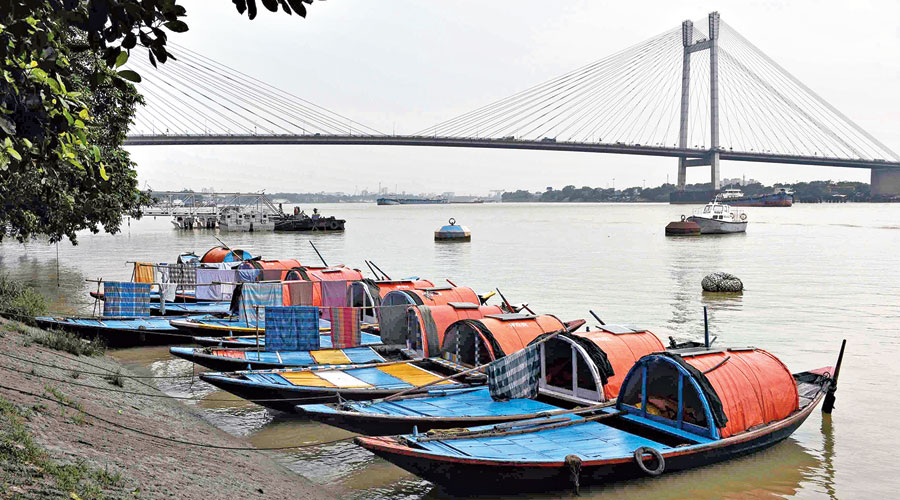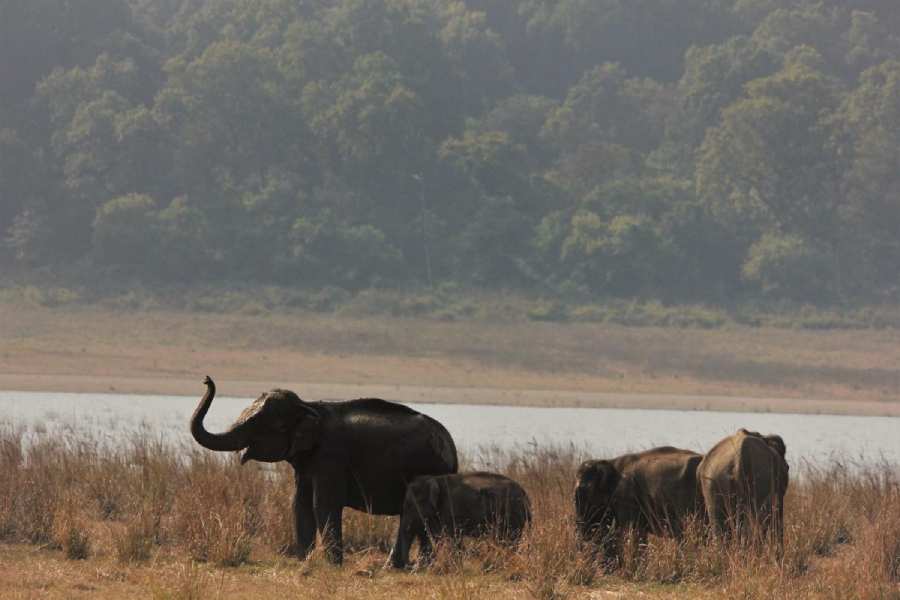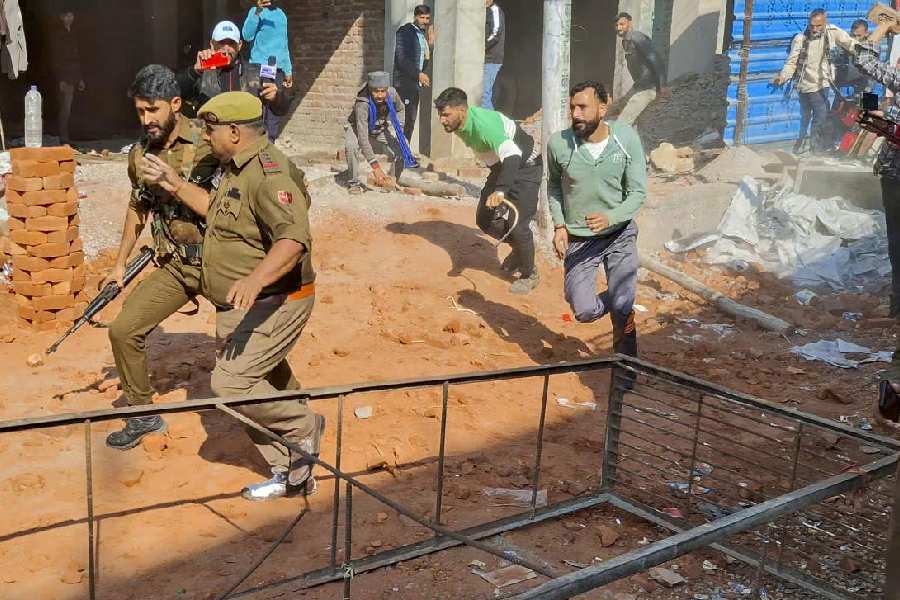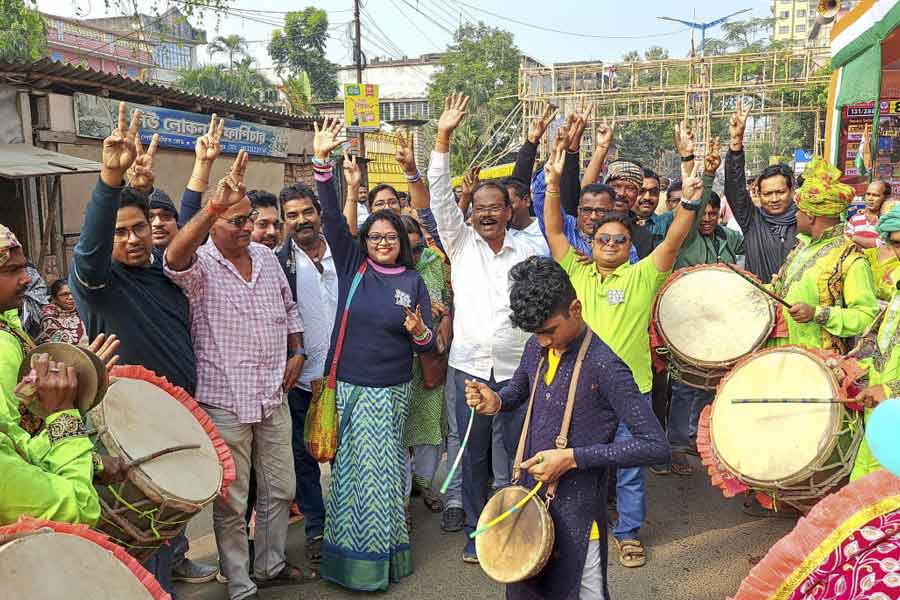The city is opening up in the run-up to the festive season. Restaurants and malls are back to being busy.
But for some places synonymous with the city, things are a far cry from the past. Metro finds out:
Busy promenade, empty boats
On September 25, the parking area outside Prinsep Ghat had several two and four-wheelers. Scores of people strolled on the walkway. There was a semblance of maintaining distancing rules in the seating pattern on benches and the concreted tree bases. But the food stalls selling pav bhaji, bhelpuri and phuchka were relatively empty.
A series of empty boats were anchored near the ghat. The boatmen were huddled on benches and stairs leading to the river, some smoking bidis. “There is hardly any customer,” Bakar Sheikh, a boatman, said.
An hour’s ride costs Rs 500 and a 30-minute one Rs 300. The fare is usually split between the owner, the boatman and his helper.
September is generally a good time for boatmen. The weather is not harsh and customers drop by in the afternoons as well. There are close to 25 boats near Prinsep Ghat and each get around five rides every day in the run-up to Durga Puja. But not this time.
“On many days, there is not even one ride for a boat,” another boatman said.
The lockdown had forced Sheikh to row downstream and reach home to Falta in South 24-Parganas in mid-April. He worked in a farm and did “odd jobs” before returning to the city in September.
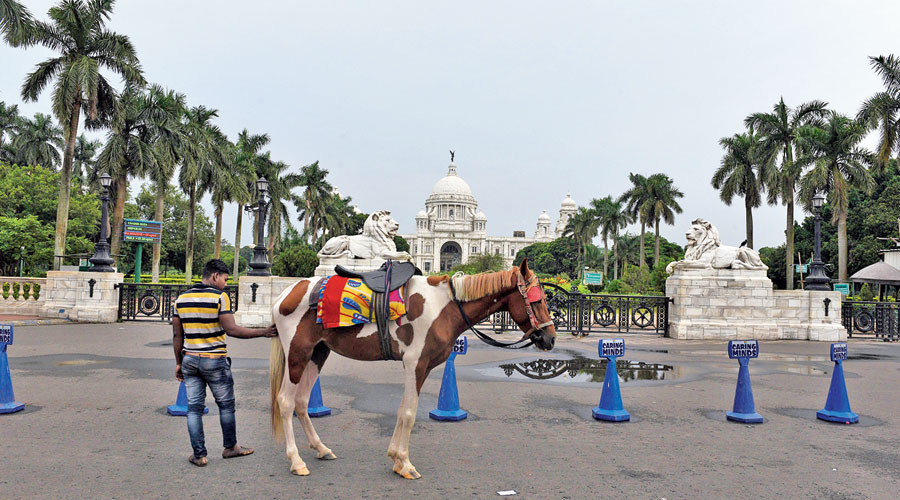
The empty northern gate of Victoria Memorial Pradip Sanyal
Mind the munch
The food stalls outside Vardaan Market were busy but lacked the usual weekend din. There were a couple of customers at Victoria Vada.
The stall had turned heads in November 2013 when visiting British Prime Minister David Cameron dropped in.
The owner’s son, Anurag Chauhan, rued the “days gone by”. “Selling fewer than 120 plates on a Saturday or Sunday was unusual before the lockdown. Now, 60 plates every Saturday or Sunday are more than acceptable.”
From 10kg of pulses on a weekend, he now uses less than 4kg to prepare the vada mix. “Even then, some part of the stuff remains unused,” Chauhan said.
Since April, May and June saw almost zero business, he is relieved to be able to “earn something”.
Around 4km away, at Vivekananda Park, Jitendra Pandit, counted among the best phuchkawalas in town, had a similar story to tell.
His stall reopened on August 15. But business is a fraction of what it used to be. “My daily sales have been less than Rs 800 on average,” Pandit said.
Till last winter, his sales figures crossed Rs 3,000 on “good days”.
Pandit prides himself on his craft. It “hurts” him to see his signature dahi phuchkas remaining unsold.
But like Chauhan, he is content to be able to do business. Between April and August 15 he had to stay indoors.
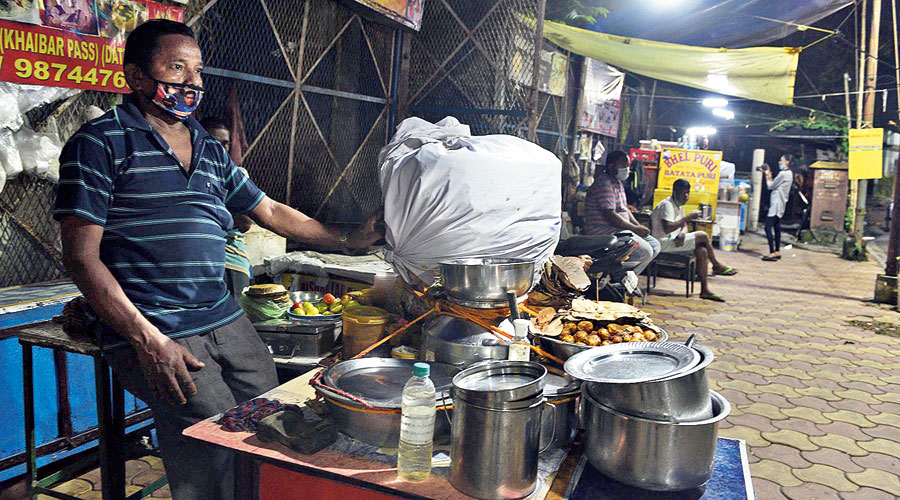
Jitendra Pandit waits for customers at Vivekananda Park Pradip Sanyal
Gone — carriages
The most eye-catching thing outside the northern gate of Victoria Memorial, currently shut, was the long row of horse-drawn carriages. On September 25, Metro found none, barring a few horses grazing on the Maidan.
Many of the carriages were found lying under the Kidderpore bridge and children trying to get on to them. Javed, a coachman, sat on the ground close to the dumped carriages.
He said he had been without income for months before he could secure a job at a Kidderpore eatery. “To see your children hungry is the worst feeling ever,” Javed, 38, said.
An advertising professional said people were sceptical about places that did not “flaunt investment in sanitisation”. “People will go to a mall… a thermal gun and huge banners of Covid protocol hanging from the ceiling will greet them. But they are not sure of the local phuchkawala.”

